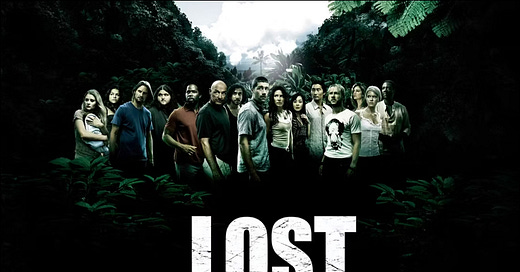There are many things that the series Lost did uniquely, and many things it did uniquely well, but over the last couple of years I’ve been giving one such quality a lot of thought. Where, I wondered, are the new shows with a cast of characters as diverse as the one in Lost?
First, a qualification: when I talk about a diverse cast of characters, I don’t just mean actors from various backgrounds. I mean a show that deals with a variety of cultural backgrounds, that explores the clashes and co-operations that emerge when myriad religious, cultural, and political worldviews collide, and which examines our shared humanity and how that whole is built out of its wildly differing parts.
A prerequisite for such a show to work is having a narrative scale big enough to explore multiple backgrounds and stories. Granted, Lost is occasionally baggy, and at times in its middle season the looseness of its plotting threatens to entirely unravel, but for the most part its huge scale is justified. This is a show, after all, exploring nothing less than life, death, redemption, and the eternal battle between good and evil. You don’t tell that story in six episodes.
So the show has to be big. The range of its characters also has to be an integral part of the story, rather than a tacked-on addition for political brownie points or for a network (or streaming studio) to gain progressive kudos. The makers of Lost knew from the beginning that the story they had to tell was fundamentally one about human nature, and so it couldn’t be parochial in its telling. And they had the horse correctly before the cart in casting: they found the actors who could bring something important to the narrative and wrote the story around them. The actress Yunjin Kim auditioned for a role J J Abrams thought she wasn’t right for, but he was so impressed with her that they created the character of Sun and an entire storyline just for her.
We’ve had tons of prestige TV shows with multiple seasons each with dozens of episodes, from The West Wing to Breaking Bad. We’ve had a few shows with wide geographical settings, with Game of Thrones being the most obvious – but that was a fantasy setting, which meant that it couldn't examine with any authenticity the human experiences of people from different places in the actual world.
Over the last decade, the breadth of storytelling has shrunk, with series increasingly having only six to eight episodes a season, and many so-called “limited series” that have only one season. There’s a lot to be said in favour of this, and I personally prefer the one-shot stories of shows such as Midnight Mass and the tight, well-crafted storytelling of shorter series such as Dark. On the other hand, this brevity leaves little space for deep, nuanced exploration of a global cast of characters.
Then, towards the end of 2022, it looked as if Netflix was finally going to meet my unspoken challenge by releasing a series called 1899. Not only did its trailers make it look like the kind of mystery-box show that Lost exemplified, it boasted a huge array of languages, their speakers coming from all over the world. In an interview with Deadline Hollywood, one of the creators said:
“We felt that with the past years of Europe being on the decline, we wanted to give a counterpoint to Brexit, and to nationalism rising in different countries, to go back to that idea of Europe and Europeans working and creating together.”
In the end, however, the show was dud. The story fell flat and, worst of all, the characters were rarely if ever fleshed out beyond a single defining characteristic. There was the timid one, the brave one, the curious one, the sleazy one… The creators of 1899 have spoken about how important it was that they had multiple languages spoken, rather than everyone speaking English, but this too was handled poorly. Pairs of people who didn't speak the same language would be forced to go off together, and one of them would end up giving a monologue, in English or subtitled, while the other person stared at them with a bovine expression of incomprehension. It was like those awful speeches characters in soap operas say to themselves to make their thoughts and intentions clear to the audience, realism be damned.
Here, too, Lost provides a great example of how to handle the representation of a multilingual cast. Sun, whom I mentioned earlier, and her husband, Jin, are isolated from the rest of the survivors of the plane crash that opens the show because they are the only ones who don’t speak English. So when they attempt to communicate with the others, there are no subtitles for their Korean. We are left as confused by what Sun is trying to say as the English-speaking characters are. When Sun and Jin speak to each other, however, we get subtitles, bringing us into their intimacy. It’s a seemingly small creative choice, but it achieves so much.
So I’m still waiting and hoping for a series that can offer us both an exploration of the perennial human condition and an examination of the particular moment we find ourselves in regarding global politics and questions of diversity and representation. It’s a relatively big ask, and we probably need a relatively big show for it. Let’s see what the likes of Netflix, HBO, Disney, and the other studios can offer.





